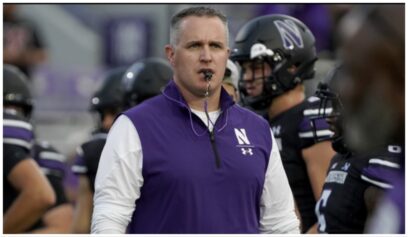Kent State begins their 2019 season tonight in Arizona against Herm Edwards and Arizona State.
While many aren’t giving the Golden Flashes much of a chance against the Sun Devils, the game is crucial to Kent State. According to USA TODAY, the team will be paid $1.5 million tonight, approximately a quarter of the millions they will earn as part of their “pay for play” schedule.
Kent State finished 2-10 last season, and are not seen as a contender for a national championship this year. But the team will make $4.5 million through their games against Power Five conference teams this year, which puts them at the top of the list of revenue from guaranteed games this season for non-Power Five, non-independent programs. Southern Mississippi and Middle Tennessee State are second with $3.15 million apiece.
For the majority of HBCU programs, pay for play games are essential to a school’s overall athletic budget, so this isn’t a new strategy. It’s just the reality in the big-money world of college football.
It’s also a strategy that can reap major benefits. Just ask former Howard head football coach Mike London about the Bison’s huge upset win over UNLV two years ago despite being a 45-point underdog. Not only did they receive national exposure, but they also netted a $600,000 payday.
45 point underdogs. 45!!!! https://t.co/LlMokQkol9
— The Shadow League (@ShadowLeague) September 3, 2017
Kent State will actually net $4.2 million after paying Kennesaw State $300,000 for their game in September, but that total, according to university athletics director Joel Nielsen, will account for “10 to 15%” of Kent State’s athletics department revenue for the 2020 fiscal year.
“It’s not insignificant when you look at roughly a $30 million budget,” said Nielsen to USA TODAY Sports. “So (guarantee games were) part of our conversations with university administration when we’re projecting a five-year budget and what can be done to enhance revenues and control expenses.”
The Golden Flashes will play at 16th ranked Auburn and 19th ranked Wisconsin over the next two months, netting them $1.9 and $1.1 million, respectively. While there’s always a chance to pull an Appalachian State type of victory, the implications to the school’s budget holds just as much significance, albeit one not discussed out loud heading into game day.
While some question the rationale of these games, Kent State has reasons to take them. The money is good and the exposure they receive against big programs can help with recruiting. But most interesting is the fact that the financial windfalls from these games are not given directly to a specific project, so it can help a variety of initiatives and programs at the school.
“We want to do everything on our end, from an external standpoint, to raise revenues to either keep that subsidy at the same level or either reduce that,” Nielsen said. “Our fiscal model, that we work with the university administration on, doesn’t specifically dictate that the monies from a specific guarantee game go toward a specific project. But those monies are directed into our overall budget.
“The biggest challenge, I think, is knowing that … it’s going to be difficult for us to be competitive each and every game,” continued Nielsen. “It’s a great opportunity for us to make some noise nationally, but it’s a heck of a challenge to come out of there with a win.”
If they win, the school’s outlook rises. And with games next year against Alabama, Kentucky and a soon-to-be-announced Power Five school, which are estimated to generate almost $5 million for the university, these next two seasons have major implications in terms of prestige and revenue for Kent State.
“It’s an opportunity for not only (the players) as individuals but also our program and our university,” said Nielsen. “It’s a university strategy also to brand ourselves and get our brand out there.”



